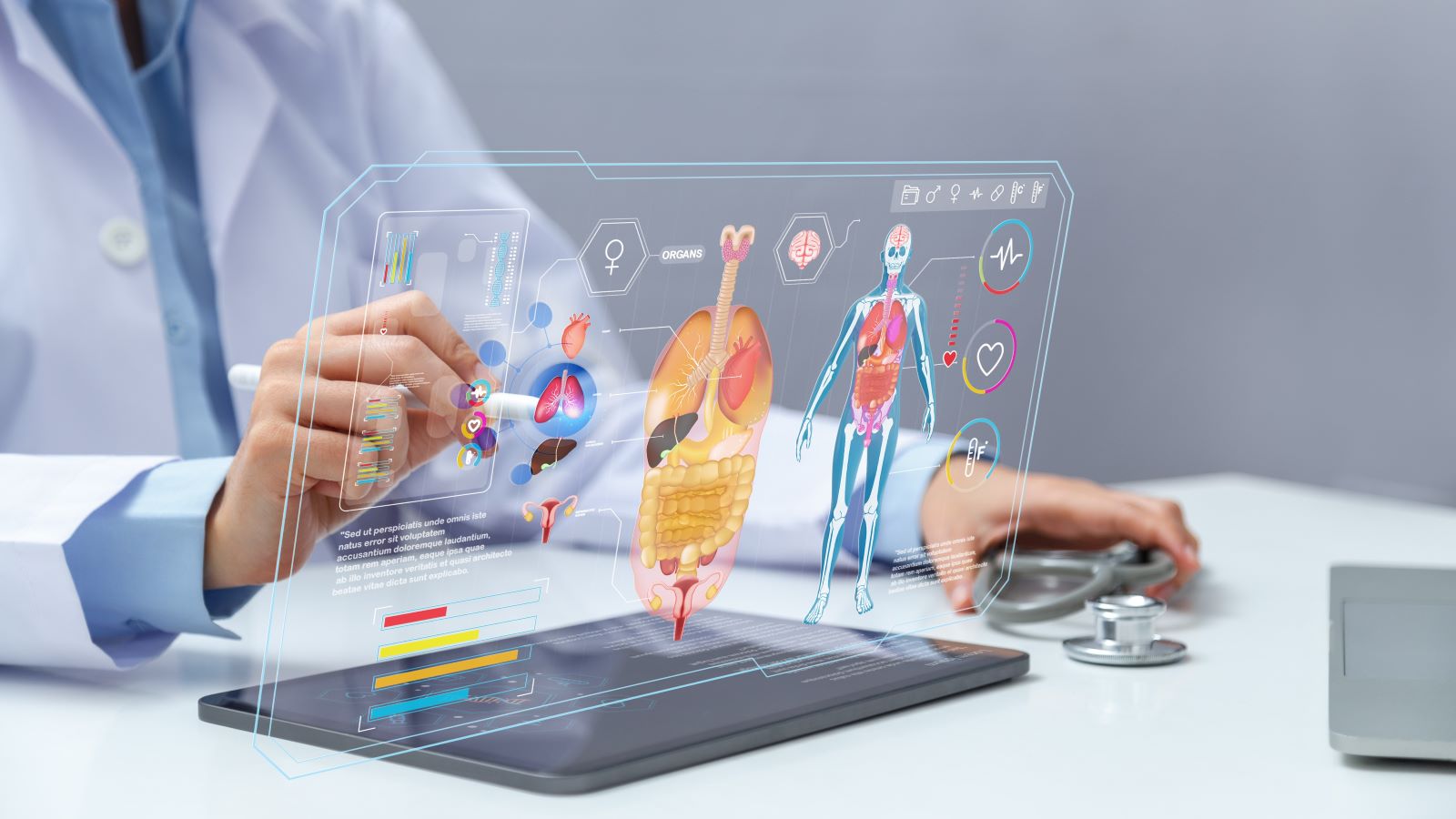<< Back
Will AI Change Cancer Diagnosis and Treatment?

February 19, 2024
While Artificial Intelligence in healthcare may seem far-fetched, it’s not.
“AI is not as new of a phenomenon as we might think,” explains Peter Yu, MD, the physician-in-chief at the Hartford HealthCare Cancer Institute. “It’s really an extension of using computers in healthcare.”
And although healthcare is behind in adopting digital technology, there’s no denying that AI is going to have an impact.
“There is no doubt in my mind that AI will transform healthcare for the better and in ways we can’t yet see with clarity,” says Dr. Yu. “But since people’s lives are at stake, we must make decisions deliberatively.”
So, how could AI impact cancer care? Dr. Yu helps shed light on this complex topic.
AI could help improve diagnosis and treatment of cancer.
One of the most familiar ways we interact with AI – and might not know it – is when we unlock our phones using facial recognition.
“One of the areas where AI has advanced most quickly is in computer vision,” says Dr. Yu. “Outside of medicine, it’s widely used in facial recognition and applied to augmented reality and autonomous driving.”
That same computer vision has the potential to help improve the diagnosis and treatment of cancer.
AI could be used to look for patterns typical of cancer in digital radiology and pathology images, like MRI scans and microscopic slides. It could also help guide radiation treatment, using enhanced precision to treat the cancer while protecting adjacent healthy tissue to minimize side effects.
“Radiation oncologists are exploring computer vision to identify the cancer margin,” explains Dr. Yu. “AI tools could also help program the radiation machines to deliver treatment more accurately.”
> Related: Why Young Adults May Want to Be Screened for Colon Cancer Before Age 45
AI could be your translator for medical jargon.
Those familiar with ChatGPT have interacted with another form of AI – Large Language Models. This advanced form of language processing interprets products like search engines, and can even write poetry or software code.
This technology could be a game-changer for patients looking to better understand the information in their electronic medical records – which is typically heavily jargoned and intended for healthcare professionals.
“AI can help summarize these documents in more easily understood words,” says Dr. Yu. “Patients often have commonly asked or predictable questions, and chatbots can provide answers quickly and accurately.”
But are there ethical concerns about AI in healthcare?
The short answer is yes.
“People have raised many ethical concerns,” says Dr. Yu. “This includes the protection of privacy of patient information and disclosure to patients about whom their data is shared with and for what purposes.”
In addition privacy issues, there are also concerns around the accuracy of information and recommendations generated by AI and the possibility of AI using databases that perpetuate systemic bias, says Dr. Yu.
Cancer prevention starts with you, not AI.
While AI is more likely to impact cancer detection, diagnosis and treatment over the next few years, Dr. Yu wants to clarify that technology is not the main driver for cancer prevention.
“Cancer prevention means taking steps to avoid known causes of cancer,” Dr. Yu says. “It’s more about personal choices and responsibilities than it is about AI.”
This includes:
- HPV vaccination, which helps prevent cervical, penile, head and neck cancers.
- Hepatitis B vaccination, to help prevent liver cancer.
- Lifestyle changes that can more broadly protect against cancer, like no tobacco use, better nutrition and weight control.